AO Mailbag: Is It Rude to Travel Without Your Significant Other?
The Atlas Obscura team answers audience questions about all things solo travel.
Listen and subscribe on Apple Podcasts, Spotify, and all major podcast apps.
Dylan Thuras: I’m here and no one’s here yet. This is a mailbag episode, and so we’re going to chat and ask each other questions. But it’s just me right now. So I’m going to eat some clementine and get some ASMR of me eating a clementine. People don’t like the sound of other people eating, but too bad. I wonder who figured out ASMR first. Like how old is it? I mean, obviously—
Johanna Mayer: What are you talking about? Just got on the Zoom and it’s Dylan talking to himself eating chips.
Dylan: No, not chips. Orange slices.
Johanna: Oh, much better.
Dylan: I was just doing a little … I was here alone. I was doing a little ASMR of what it sounds like to eat a clementine. You know.
Johanna: Ew.
Dylan: Why not? It sounds … Honestly, peeling a clementine sounds really good. Hi.
Johanna: What’s up, Amanda?
Amanda McGowan: Hey. What did I miss?
Dylan: The goal for this mailbag is for everyone to enter in the most disorienting moment humanly possible.
Johanna: Yeah.
Dylan: I achieved it twice. I’m feeling good.
Johanna: Okay, Dylan, do you want to do the show intro?
Dylan: Yeah, we better do it. Yeah. I’m Dylan Thuras.
I’m Johanna Mayer.
I’m Amanda McGowan.
Dylan: And this is Atlas Obscura, a celebration of the world’s strange, incredible, and wondrous places. Today, we try to answer questions about solo travel.
This is an edited transcript of the Atlas Obscura Podcast: a celebration of the world’s strange, incredible, and wondrous places. Find the show on Apple Podcasts, Spotify, and all major podcast apps.
-5.jpg)
Johanna: Okay, first question. This one is from a listener named Kara. She says, “I just graduated college, and I’m about to go on a month-long backpacking trip before starting real life in the fall. Honestly, the thing that I’m worried about the most is: I am shy. Am I really not going to talk to anyone for a month? Also, I’m going to be moving around a bunch, and that makes it tough to make friends. Do you have any tips for meeting people while on the move?” What do you think?
Dylan: Yeah, I mean, this is a tip—I think it still holds. It held—I mean, I did a big trip right before college. I was just out of high school. I was still 17. Me and my friend, he was 18. We did like a month and a half.
Johanna: Well, in that case.
Dylan: He was 18.
Johanna: Glad there was an adult there.
Dylan: We had one adult on the trip. And we did a month and a half all across Europe, and at least at that time—it was a long time ago—but hostels do actually provide a lot of opportunity to meet other travelers, especially if you’re young.
Amanda: I also, I went on a trip—I was probably in my early 20s with a friend of mine—and yeah, I remember we were in Rome or something, and we just ended up talking to this group of people. And we all ended up going on this excursion to a neighborhood together and getting lunch together. And it was really fun.
Johanna: Did you ever talk to those people again?
Amanda: No, no, no.
Johanna: Yeah. That’s okay.
Dylan: But that’s how it works.
Amanda: I think we were friends on Facebook maybe for a while.
Dylan: I like that kind of thing. You’re good friends with someone for like 48 hours or like half a week, and then you’re all like, “Bye. I’m literally never going to see you again.” That’s kind of—there’s something really beautiful about it.
Amanda: Yeah.
Johanna: I mean, that dovetails into my answer to this. I have a slightly different thought, which is that I think it’s okay if you don’t talk to anyone for a month. I think it’s totally fine to not make a friend while you’re on this. There are a lot of benefits of being by yourself and being with your own thoughts for an extended period of time, which may never happen again. I would say just don’t worry about it. And the other thing that I want to comment on in this question is Kara said this backpacking trip is supposed to be before she starts, quote, “real life in the fall.” This is real life, Kara.
Dylan: Totally.
Johanna: This is it.
Dylan: This is the realest life.
Johanna: It doesn’t get better.
Amanda: No, real life is creating shareholder value.
Johanna: Okay. Next question. This is from a listener named Dean. He says, “Two years ago I traveled for 10 months, eight months of it I was mostly by myself. Now I have image flashbacks from the trip, not just highlights, but also very mundane moments. They don’t bother me, but at first they surprised me because I don’t remember ever hearing anyone else talk about this as a phenomenon. I call them PTFBs for post-travel flashbacks. I wonder if you or your listeners have similar after-travel experiences.” I 100 percent get this and very, very mundane moments as well.
Dylan: Yeah.
Amanda: Ooh, say more. I wish he had included an example. I want to hear.
Johanna: Well, my example is like I was alone briefly on a larger trip to Indonesia. I spent six days by myself. I separated from the group. The thing that I primarily remember from that trip, I had split off in order to go see a couple temples that I really wanted to see, but I have almost no memory of that. I remember the very long bus ride from the hostel to the downtown area super clearly and how it was heavily air conditioned and the way that the doors opened and the sounds that they made. I also remember some very long walks down very hot dirt roads by myself. And those are the primary memories of that trip. So Dean, it’s not a phenomenon unique to you. I totally get it. Don’t know why exactly that is.
Dylan: I think travel in general, I feel like I have much clearer memories of. I mean, novelty sort of unfolds time in this funny way. A two-week trip can somehow feel like it takes up the same memory buffer as like six months of normal life, right? Because it’s all new and your brain is kind of doing this extra work to like, “What is that? Why is it like that? Where do you put your trash?” And that gives your brain so much to chew on, and that’s part of why it feels delightful and exciting and also sometimes taxing and exhausting. It’s all of that at once. And I feel like being solo on top of that, you’re not doing this other work of being like, “What does that person want? What are they doing? Where’d they go?”
Johanna: Oh, you’ve freed up brain space.
Dylan: Your brain space is fully occupied by your sensory experience, which is why I think your note from before about like, take the whole month, and just like actually—maybe you’ll be a little bit melancholy and lonely at points, but those memories will be like a mountain in your mind. I think that’s like a really—never heard someone describe this post-travel flashback thing, but it’s a thing. You can just get these crystal clear memories of those experiences.
Johanna: Do you guys have any specific examples?
Dylan: There’s a number of—we took a trip to Scotland with the kids, and I have all of these memories where it’s just like walking on a trail. Like it’s a sun-dappled—it’s just a nice sun-dappled trail, and I see my son is ahead of me, and I’m carrying my daughter on my shoulders, and it’s just like this perfect little sensory moment. That’s the kind of stuff that I feel like comes back to mind.
Amanda: I mean, we’ve talked a lot in these Mailbag segments about how the iconic traveling experiences can sometimes be kind of overrated, like going to the thing just to check it off. And it’s just interesting that what the brain—what your mind actually latches onto and remembers is sometimes these just more quiet, more sensory-laden moments. Yeah.
Johanna: Okay. Final question. This is from someone who did not leave their name. I think there might be a reason for it. Okay. This person says, “When I was younger, I loved traveling by myself. It was a huge part of helping me make my own identity, learn things about myself, and build confidence. These experiences gave me some of my most formative memories. Now I’m married, and I’m thinking of starting a family, and of course I want to share travel experiences with my family, but part of me is also a little sad at the thought of losing that part of my life. Is it selfish to continue to take solo trips? Do you have any suggestions for how to fit solo travel into your life?” Dylan’s nodding with a knowing look in his eyes.
Dylan: You guys go first this time. I feel like I’ve been jumping in on everything.
Amanda: My thought immediately is just, I don’t think it’s selfish. And one thing that I like to do is, if you’re going on a trip with the fam, maybe tack on a couple of days at the end and just be like, “Okay, bye family, I’m going to do a little two nights or something by myself,” and then you still get that experience, but you also get the experience of being there as a group.
Johanna: So you don’t think it’s selfish? I think maybe it’s a little selfish. I don’t necessarily think it is selfish. I totally hear what this person is saying about this formative memory as it being a very important experience to you, but I don’t know, if I’m being honest, I do think if my partner just took off on a trip by himself, I think maybe it would be a little hurt or jealous, maybe.
Amanda: And I think you’re so right that there has to be the dialogue there. It can’t always be one person doing the solo trip and the other person corralling the children.
Johanna: That definitely, yeah.
Amanda: That has to be acknowledged, yeah.
Johanna: I will say that definitely do it before you have kids. This person says they’re thinking of starting a family. I think it’s probably a whole other thing once you are ditching your partner with the children.
Dylan: I have strong thoughts on this.
Johanna: Okay. Okay, Dylan, you’re up.
Dylan: Okay. Well, I think you’re both right. Johanna, I do think it can’t work if someone’s constantly just like, peace, I gotta go explore myself. But I also think, actually, I actually think, especially after you have kids, and so much of your life is actually sort of logistical and more kind of like you’re a partnership running the business of your family. That is sort of what happens. And I’m about to take a huge trip with my whole family. And one of the things we’ve been explicitly talking about is making sure that along the way each of us gets like half a day to—I’ll take the kids, and Michelle will go and wander around and go to a flea market for half a day. And then some other time, I’ll do that. Or then we’ll split up and we’ll each take one kid. But like, it is actually oppressive to be in the same group of people for really long periods of time, because it’s stressful, and you don’t get a chance to kind of think. And so I think even on a trip with a partner or with family, actually making time to split up and do separate things and then come back together. It’s hard, because you have to be really explicit about it. I do think it’s good. I think it actually improves everyone’s like mental health and well-being. And then on a bigger perspective, I just think it has to be reciprocal. So maybe your partner is like, well, what I want to do is take a long weekend and go hang out with my friends who I grew up with. And we’re going to do a boy’s weekend or a girl’s weekend. And you’re like, what I want to do is like, actually, I’m going to take four days and go explore this place, or even a week. I mean, there’s probably a limit on total time, but like, which is probably about a week, but like …
Johanna: I think it’s a week, max.
Dylan: It’s a week. It’s a week, max.
Amanda: I think three days would do the job.
Dylan: Long weekend is probably the right scale, week is probably maximum. But I do think if there’s that reciprocality where it’s like, okay, this is just a thing that twice a year, you know, we each just go do a thing. And that’s just in our contract as a relationship, actually, that’s very healthy. I think that’s really good for everybody.
Johanna: You know, you speak the truth. And it’s a good point also that like, I don’t know why there’s this difference in my mind. If my partner came to me and was like, “I want to spend a weekend with my boys. We’re going to go fishing or whatever,” I’d be like, yes, absolutely. Like, go. You need to nurture those friendships. Like, go do that. But if he was just like, “Hey, I’m going to this other city by myself for a long weekend or whatever,” I think I’d be like, “Well, what the hell? I want to do that too.” Maybe it’s not fair. Maybe I need to expand my mind a little bit.
Dylan: I do think it takes a high-trust relationship. I think it takes a high-trust relationship because it does feel a little bit harsh to be like, oh, you’d rather be literally by yourself? Like, excuse me? That’s rude. Like, that’s really rude. But I think if you have that kind of communication, it’s just like this is something that brings me a lot of joy and peace and quiet. And frankly, when you have kids in a family, that is actually really important to get because I think it can become suffocating for people, you know, especially moms in particular because like so much of the expectation is like around sort of constant kid availability, you know what I mean? It’s just like, that’s like, it’s good. It’s going to be good for everybody’s well-being. It’s good for people to have, you know, like to have the kids by themselves, a different experience to have your kids on your own. And it’s like it can be fun. It can be challenging. It makes you appreciate having a partner there in a very serious way. You know, you’re like, oh, thank God you’re back. You know, yeah.
Johanna: So it sounds like the moral of the story is do it now before you have kids and not for too long.
Amanda: Yes. It’s certainly easier that way. Yeah.
Dylan: Do it. Keep doing it. Do it. Just high-trust, high-communication relationship. Johanna’s boyfriend, do not do this. No.
Johanna: It’s my husband, Dylan.
Dylan: No, yeah, your husband, your husband! You guys got married! No. Double no. Super, absolutely not. It makes me want to go solo traveling, to be honest. Like it feels, this all feels very romantic. There’s something romantic about solo traveling.
Johanna: Bye Michelle. Bye the kids.
Dylan: No, this isn’t …
Johanna: No, I’m on board. I’m on board. I’m on board.
Dylan: I travel so much for work and stuff that actually in my own relationship at this point, if I was like, I just want to take a week and do, it’s like, Michelle does do that actually. Michelle will go off by herself for a few days.
Amanda: That’s cool.
Johanna: Where does she go?
Dylan: To a cabin. Like, up to a cabin and she like reads, you know what I mean?
Amanda: She gets it.
Dylan: Dude, she plays the oboe, she’s practicing, she reads, she’s just like …
Johanna: You know what? It’s good. I’ve had a change of heart. Somehow, hearing that Michelle does and I’m like, that’s awesome, good for Michelle.
Dylan: Yeah. I can’t do it. No way. Not me. Uh-uh. Thank you for hanging out with us while we talk about solo travel.
Listen and subscribe on Apple Podcasts, Spotify, and all major podcast apps.
This episode was produced by Johanna Mayer. Our podcast is a co-production of Atlas Obscura and Stitcher Studios. The people who make our show include Doug Baldinger, Kameel Stanley, Johanna Mayer, Manolo Morales, Amanda McGowan, Alexa Lim, Casey Holford, and Luz Fleming.


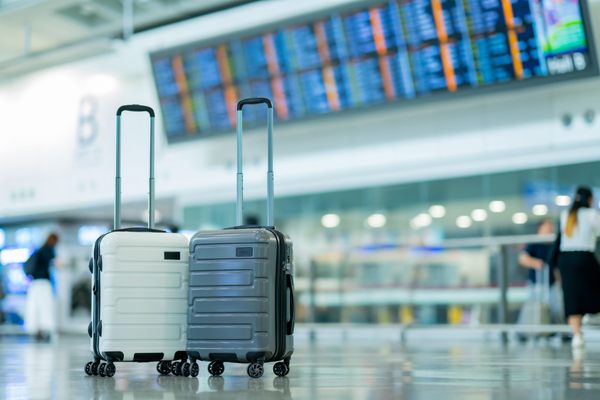
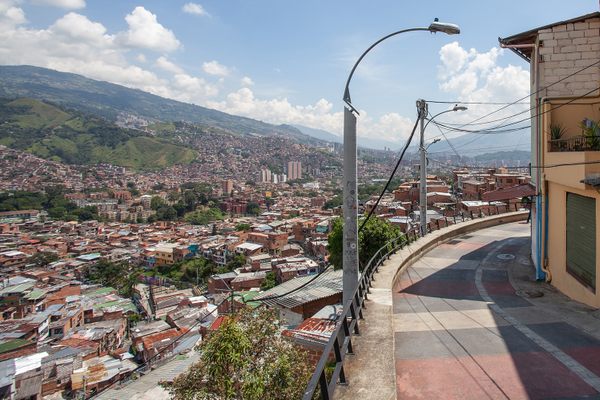

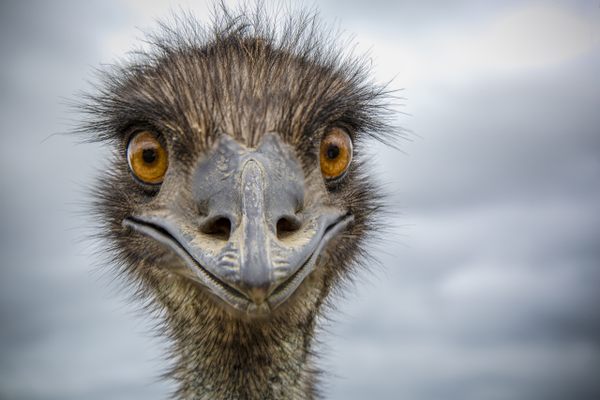
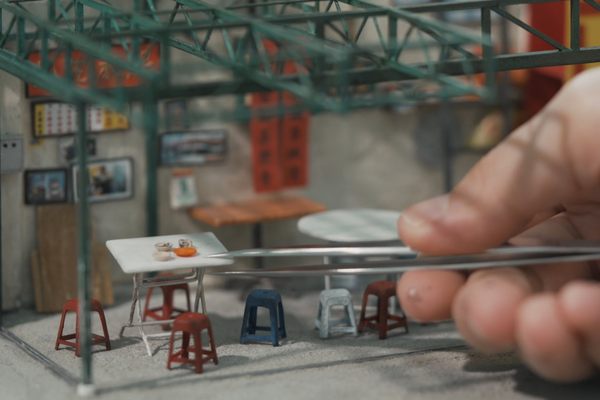
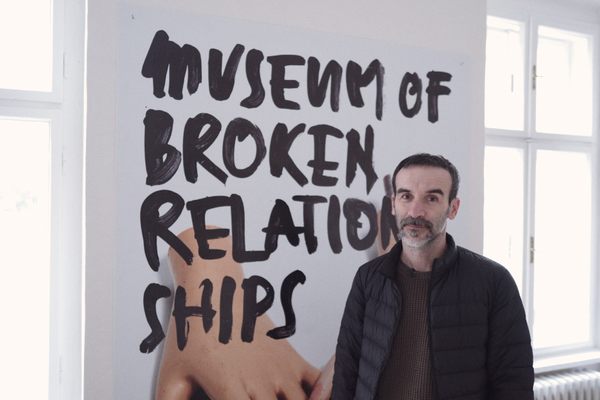
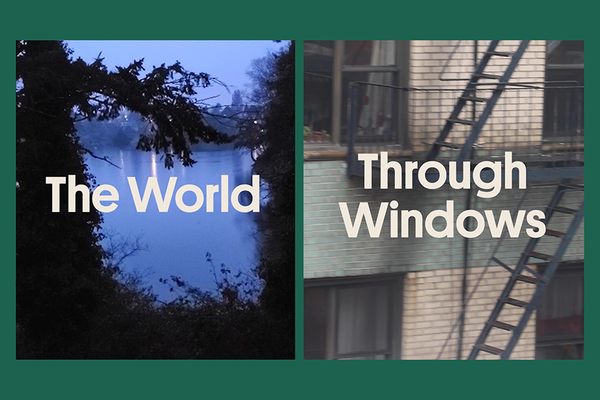
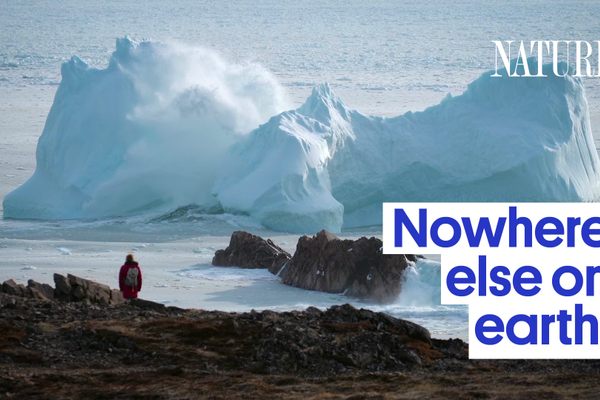


Follow us on Twitter to get the latest on the world's hidden wonders.
Like us on Facebook to get the latest on the world's hidden wonders.
Follow us on Twitter Like us on Facebook